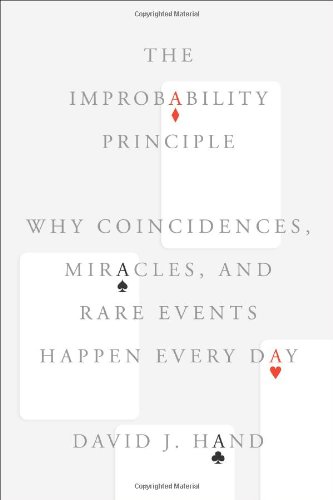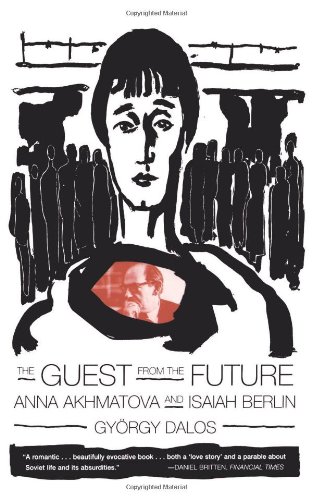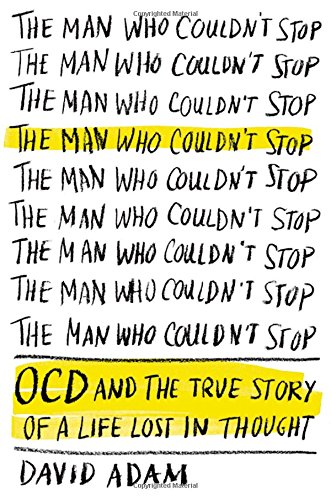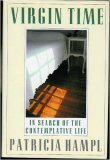Download The Improbability Principle: Why Coincidences, Miracles, and Rare Events Happen Every Day, by David J. Hand
The soft data means that you need to visit the link for downloading and afterwards save The Improbability Principle: Why Coincidences, Miracles, And Rare Events Happen Every Day, By David J. Hand You have actually possessed the book to check out, you have actually presented this The Improbability Principle: Why Coincidences, Miracles, And Rare Events Happen Every Day, By David J. Hand It is simple as going to the book stores, is it? After getting this short explanation, ideally you can download one as well as begin to check out The Improbability Principle: Why Coincidences, Miracles, And Rare Events Happen Every Day, By David J. Hand This book is quite simple to read every time you have the leisure time.

The Improbability Principle: Why Coincidences, Miracles, and Rare Events Happen Every Day, by David J. Hand

Download The Improbability Principle: Why Coincidences, Miracles, and Rare Events Happen Every Day, by David J. Hand
The Improbability Principle: Why Coincidences, Miracles, And Rare Events Happen Every Day, By David J. Hand. It is the moment to improve as well as revitalize your skill, understanding and encounter included some home entertainment for you after long time with monotone things. Operating in the office, visiting examine, learning from examination as well as more activities may be completed and also you need to begin new things. If you feel so tired, why do not you attempt brand-new thing? A quite simple thing? Checking out The Improbability Principle: Why Coincidences, Miracles, And Rare Events Happen Every Day, By David J. Hand is just what our company offer to you will certainly understand. And also the book with the title The Improbability Principle: Why Coincidences, Miracles, And Rare Events Happen Every Day, By David J. Hand is the referral currently.
This is why we suggest you to always visit this page when you need such book The Improbability Principle: Why Coincidences, Miracles, And Rare Events Happen Every Day, By David J. Hand, every book. By online, you may not getting the book establishment in your city. By this online collection, you could discover guide that you truly want to check out after for long time. This The Improbability Principle: Why Coincidences, Miracles, And Rare Events Happen Every Day, By David J. Hand, as one of the recommended readings, tends to be in soft data, as every one of book collections here. So, you may also not await couple of days later to obtain and check out the book The Improbability Principle: Why Coincidences, Miracles, And Rare Events Happen Every Day, By David J. Hand.
The soft documents suggests that you should visit the web link for downloading and install and afterwards save The Improbability Principle: Why Coincidences, Miracles, And Rare Events Happen Every Day, By David J. Hand You have actually owned the book to check out, you have actually posed this The Improbability Principle: Why Coincidences, Miracles, And Rare Events Happen Every Day, By David J. Hand It is easy as going to guide shops, is it? After getting this quick description, hopefully you can download one and also begin to read The Improbability Principle: Why Coincidences, Miracles, And Rare Events Happen Every Day, By David J. Hand This book is extremely easy to read whenever you have the free time.
It's no any sort of faults when others with their phone on their hand, and also you're too. The difference might last on the product to open up The Improbability Principle: Why Coincidences, Miracles, And Rare Events Happen Every Day, By David J. Hand When others open up the phone for chatting and chatting all things, you could in some cases open as well as read the soft file of the The Improbability Principle: Why Coincidences, Miracles, And Rare Events Happen Every Day, By David J. Hand Of course, it's unless your phone is available. You could likewise make or wait in your laptop or computer that eases you to read The Improbability Principle: Why Coincidences, Miracles, And Rare Events Happen Every Day, By David J. Hand.

In The Improbability Principle, the renowned statistician David J. Hand argues that extraordinarily rare events are anything but. In fact, they're commonplace. Not only that, we should all expect to experience a miracle roughly once every month.
But Hand is no believer in superstitions, prophecies, or the paranormal. His definition of "miracle" is thoroughly rational. No mystical or supernatural explanation is necessary to understand why someone is lucky enough to win the lottery twice, or is destined to be hit by lightning three times and still survive. All we need, Hand argues, is a firm grounding in a powerful set of laws: the laws of inevitability, of truly large numbers, of selection, of the probability lever, and of near enough.
Together, these constitute Hand's groundbreaking Improbability Principle. And together, they explain why we should not be so surprised to bump into a friend in a foreign country, or to come across the same unfamiliar word four times in one day. Hand wrestles with seemingly less explicable questions as well: what the Bible and Shakespeare have in common, why financial crashes are par for the course, and why lightning does strike the same place (and the same person) twice. Along the way, he teaches us how to use the Improbability Principle in our own lives―including how to cash in at a casino and how to recognize when a medicine is truly effective.
An irresistible adventure into the laws behind "chance" moments and a trusty guide for understanding the world and universe we live in, The Improbability Principle will transform how you think about serendipity and luck, whether it's in the world of business and finance or you're merely sitting in your backyard, tossing a ball into the air and wondering where it will land.
- Sales Rank: #456174 in Books
- Published on: 2014-02-11
- Released on: 2014-02-11
- Original language: English
- Number of items: 1
- Dimensions: 9.21" h x .97" w x 6.39" l, 1.07 pounds
- Binding: Hardcover
- 288 pages
From Booklist
Multiple lottery wins. Unexpected financial meltdowns. Lightning striking the same person several times. These events, while astounding, are nonetheless to be expected, as mathematics professor Hand capably explains in this well-plotted book. The principle hinges on the idea that seemingly improbable events, from the individual to the cosmic level, are commonplace due to several factors. Academic but not dry, the concepts are presented in a relevant way and at a good clip, with some eye-catching examples. Hand notes the counterintuitive nature of certain aspects of probability, as well as the history of how understanding in the field has developed. A touch of levity goes a long way toward making the subject engaging. As Hand shows, probabilities are also about people—what we view as remarkable and why. Far from being disillusioning or removing the magic from these events, the elegant framework beneath marvelous events is something worth marveling at in itself. For those interested in an understanding of the principles of probability, this account is sure to be an odds-on favorite, even for those without much background in the subject. --Bridget Thoreson
Review
“Human beings are a superstitious lot; we see patterns everywhere. But as Hand makes clear in this enlightening book, it all comes down to the math.” ―Jennifer Ouellette, The New York Times Book Review
“Very engaging . . . If you wish to read about how probability theory can help us understand the apparent hot hand in a basketball game, superstitions in gambling and sports, prophecies, parapsychology and the paranormal, holes in one, multiple lottery winners, and much more, this is a book you will enjoy. I will go further. The statistician Samuel S. Wilks (paraphrasing H.G. Wells) said that ‘statistical thinking will one day be as necessary for efficient citizenship as the ability to read and write.' With that laudable goal in mind, The Improbability Principle should be, in all probability, required reading for us all.” ―John A. Adam, The Washington Post
“[A] lucid overview of the mathematics of chance and the psychological phenomena that can make probability seem counter-intuitive to so many . . . Hand has written a superlative introduction to critical thinking, accessible to everybody, regardless of mathematical ability.” ―New Scientist
“[An] ingenious introduction to probability that mixes counterintuitive anecdotes with easily digestible doses of statistics . . . Hand offers much food for thought, and readers willing to handle some simple mathematics will find this a delightful addition to the 'why people believe weird things' genre.” ―Publishers Weekly
“Lively and lucid . . . an intensely useful (as well as a remarkably entertaining) book . . . It can transform the way you read the newspaper, that's for sure.” ―Salon
“[Hand] leads readers through this unfamiliar land of probability and statistics with wit and charm, all the while explaining in layman's terms the laws that govern it . . . We predict there's a very good chance you'll enjoy this book” ―Success
“Enlightening and entertaining . . . an erudite but utterly unpretentious guide . . . ably and assuredly demystifies an ordinarily intimidating subject” ―Kirkus
“In my experience, it is very rare to find a book that is both erudite and entertaining. Yet The Improbability Principle is such a book. Surely this cannot be due to chance alone!” ―Hal R. Varian, chief economist at Google and professor emeritus at the University of California, Berkeley
“Considering that The Improbability Principle comes from the keyboard of David J. Hand, it was perhaps inevitable that it would be a certain winner!” ―John Pullinger, president of the Royal Statistical Society
“Written by one of the world's preeminent statisticians, The Improbability Principle provides you with a sense of what chance and improbability really mean, and engenders an understanding that uncertainty rests at the core of nature. I highly recommend this book.” ―Joseph M. Hilbe , president of the International Astrostatistics Association and ambassador for the NASA/Jet Propulsion Laboratory at the California Institute of Technology
“As someone who happened to meet his future wife on a plane, on an airline he rarely flew, I wholeheartedly endorse David J. Hand's fascinating guide to improbability, a subject that affects the lives of us all, yet until now has lacked a coherent exposition of its underlying principles.” ―Gordon Woo, catastrophist at Risk Management Solutions and author of Calculating Catastrophe
“The Improbability Principle is an elegant, astoundingly clear, and enjoyable combination of subtle statistical thinking and real-world events. David J. Hand really does explain why ‘surprising' things will happen and why statistics matters.” ―Andrew Dilnot, coauthor of The Numbers Game: The Commonsense Guide to Understanding Numbers in the News, in Politics, and in Life
About the Author
David J. Hand is an emeritus professor of mathematics and a senior research investigator at Imperial College London. He is the former president of the Royal Statistical Society and the chief scientific adviser to Winton Capital Management, one of Europe's most successful algorithmic-trading hedge funds. He is the author of seven books, including The Information Generation: How Data Rules Our World and Statistics: A Very Short Introduction, and has published more than three hundred scientific papers. Hand lives in London, England.
Most helpful customer reviews
78 of 83 people found the following review helpful.
"It Can't Happen" Happens All the Time
By Rob Hardy
Years ago my wife was looking through the books at a Goodwill store, and for a gag gift for my birthday she bought me a volume of poems by Rod McKuen, whose work I do not like. Helen brought it home and was going to wrap it when she looked inside. There was a dedication in the book signed by the author himself: “To Rob - May you always sleep warm. --Rod McKuen.” Now I have a volume of McKuen’s poetry I cannot throw away, but more to the point, how is it possible that completely by chance that she should pick up such a book bearing a dedication to someone of the same name? It just does not seem that such a thing could happen. It’s the sort of story told many times in _The Improbability Principle: Why Coincidences, Miracles, and Rare Events Happen Every Day_ (Scientific American / Farrar, Straus and Giroux) by mathematician David Hand. Hand knows that it is tough to write about mathematics for the layman, perhaps even more so for probability which he says “is renowned for its counterintuitive nature, more than any other area of mathematics. Even the most eminent mathematicians have been tripped up by it.” Yet there are few equations here, there are many astounding stories, and many of Hand’s explanations are drawn from tossing a humble die.
The book starts with its main contradiction, only a seeming contradiction and one of many explained away within these pages: How is it possible that extremely unlikely things happen, and not only happen, but happen over and over? Hand gives satisfying answers, but besides being a book about extraordinarily improbable events, this is also a book that explains probability in general. Take the law of inevitability: Something has to happen. In a lottery, each possible ticket has so tiny a chance of winning that you might think it a miracle if yours is the one chosen. But what _is_ certain is that some ticket will be picked to win (or if not, the stakes will be raised for the next draw when there will be a winner). It is thus dead certain that an improbable event will occur. There’s the law of truly large numbers: if there are enough possible opportunities, any outrageously unlikely event can happen. If you toss a coin enough times, and have a near-eternity to do so, you will get a run of a hundred heads; it simply has to happen. These are understood strictly with probability theory, but we have also to supplement our “understanding” of rare events by human foibles. The law of selection, for instance, says that you can make probabilities as high as you like, in retrospect. It’s like shooting arrows into the side of a barn and then painting bullseyes around each one. All of us are liable, too, to confirmation bias; we notice events that reinforce what we wish to believe and we disregard data that does not fit. Prophets and astrologers harness this tendency all the time. And sometimes we use bad equipment for our research. Federal law has specific and strict rules for every die thrown in a casino, but dice you get in a Monopoly set are far from such strict engineering and they have bias; research into psychokinesis, the ability to control die tosses, has been criticized because it used ordinary dice.
Readers of Hand’s book will have a happy tour of many aspects of probability, delivered by a guide who is knowledgeable and funny. Even if some of the math gets by you, the astonishing stories are sure to impress you, like the ones about people who have won the lottery more than once. Spare a little sympathy, however, for Maureen Wilcox, who in 1980 bought lottery tickets in both the states of Massachusetts and Rhode Island. She picked all the right numbers, too. Except the numbers she picked for Rhode Island won in Massachusetts, and vice versa.
29 of 30 people found the following review helpful.
Dull as it gets
By Skeptical by nature
I've read a lot of books on statistics, both texts for work and more casual books for entertainment value. This is among the worst that I have read.
The examples are dull, recycled, and mostly uninteresting. The concepts seem too basic for the length of the book. And in the end it just is not interesting. Pass on this one.
When I read one star reviews, I often wish the reviewers would tell me what they did enjoy, so that I could calibrate their review and, potentially, so that I could find something better. So here I'll do that. Here are two books of similar nature, both of which are far better than The Improbability Principle:
1, The Drunkard's Walk, by Leonard Mlodinow
2, Fooled by Randomness, by Nassim Taleb
0 of 0 people found the following review helpful.
Five Stars
By Amazon Customer
Read this book and giving it as a gift to my buddy.
The Improbability Principle: Why Coincidences, Miracles, and Rare Events Happen Every Day, by David J. Hand PDF
The Improbability Principle: Why Coincidences, Miracles, and Rare Events Happen Every Day, by David J. Hand EPub
The Improbability Principle: Why Coincidences, Miracles, and Rare Events Happen Every Day, by David J. Hand Doc
The Improbability Principle: Why Coincidences, Miracles, and Rare Events Happen Every Day, by David J. Hand iBooks
The Improbability Principle: Why Coincidences, Miracles, and Rare Events Happen Every Day, by David J. Hand rtf
The Improbability Principle: Why Coincidences, Miracles, and Rare Events Happen Every Day, by David J. Hand Mobipocket
The Improbability Principle: Why Coincidences, Miracles, and Rare Events Happen Every Day, by David J. Hand Kindle







